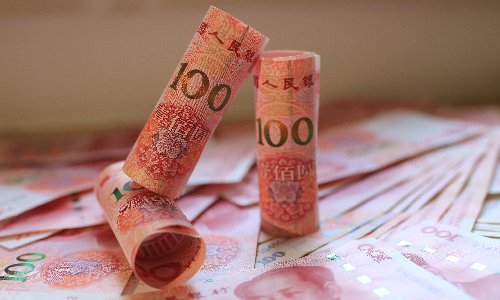How China can make fiscal policies more effective after COVID-19
By Liu Shangxi Source:Globaltimes.cn Published: 2020/5/13 0:25:13

Photo: IC
Since the COVID-19 outbreak, there has been much discussion about how fiscal policies could be used to cushion the virus' impacts.
China's politburo meeting on COVID-19 and the economy on April 17 pointed out that more fiscal policies are needed to be introduced more proactively to exert positive effects. Does that mean we should raise the fiscal deficit, expand government debt and issue special bonds? Obviously not.
As one of the basic national governing tools, fiscal policy can transform some public risks into fiscal risks. China's current fiscal condition has relative policy room to take on some public risks while the two are cautiously balanced.
The key questions of expanding fiscal deficits and debts are: where the money will be used and where will the money come from?
Recently, China rolled out dozens of supporting, bailout and preferential policies to help individuals and companies endure difficulties. These policies have brought more certainty to residents' livelihoods and production resumption, which has shown the change in thinking in fiscal policy design, which is transferring into risk management.
The politburo meeting on April 17 stressed "six priorities": safeguarding employment, people's livelihoods, the development of market entities, food and energy security, the stable operation of industrial and supply chains, and the smooth functioning of society, while preventing the spread of the virus. This shows that high risks and uncertainty remain in these six aspects due to the virus.
Many have called for strengthening stimulus on consumption and investment, but the current policy goals for fiscal policies should be to secure livelihoods and survive.
The expansion of fiscal deficits and debts should be centered on the "six priorities." Current fiscal policies should aim to secure livelihoods and minimize risks, so as to set stages for economic recovery.
In terms of specific measures, the government should set a special budget for the "six priorities" rather than issue unpacked policies. In this way, the collective effects of the policies will be amplified, or else the policies' effects in boosting market confidence will be limited. At the current juncture, strengthening policy support is conducive to stopping the spread of market pessimism.
The money could be raised by issuing special treasury bonds. The size of the special bonds could reach 5 trillion yuan in several issues and be bought by the central bank at zero interest.
Some local special bonds could be taken by the central government, because many local governments face real difficulties in expanding local debt. From the perspective of risk management, the central fiscal department has stronger control than local departments, especially units at the grass-roots level. Under the impacts of COVID-19, the central fiscal department should shoulder more responsibility to hedge risks.
The author is the president of the finance ministry-affiliated think tank Chinese Academy of Fiscal Sciences. bizopinion@globaltimes.com.cn
Posted in: EXPERT ASSESSMENT